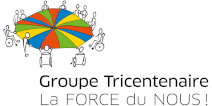
Urgent call for Europe to improve treatment access for tuberculosis
In the framework of a conference on TB held at the CHL in Luxembourg on June 18, Médecins Sans Frontières (MSF) urged European countries to provide the best and most advanced tuberculosis (TB) treatment and care to people who need it.
Indded as many TB medicines and formulations accessible in lower- and middle-income countries remain unaffordable or unavailable in Europe.
The devastating effects of the war in Ukraine on health services, including the destruction of medical infrastructures, treatment interruptions and lack of diagnosis, have exacerbated the spread of tuberculosis (TB) and its drug-resistant forms (DR-TB). Displaced people seeking refuge in Poland are victims of these tragic circumstances. Precarious living conditions and obstacles to accessing adequate healthcare are contributing to the resurgence of TB among these vulnerable populations.
In 2022, MSF began responding to the needs of refugees arriving in Poland and Slovakia from war-torn Ukraine, including by supporting the substantial amount of people who were affected by TB and DR-TB. However, it was soon clear that Poland and Slovakia were not well prepared to respond to TB, outdated standards for testing, treatment and prevention of TB, and a lack of integration of World Health Organisation (WHO) guidelines into national health policy.
When we started to support people with TB in Poland in 2022, we were appalled by the fact that newer and more effective treatment regimens that have been available in high TB burden countries for many years were simply not available in Poland” Joanna Ladomirska
Inequalities in terms of prevalence
While Poland has a low number of TB and DR-TB cases, the situation in Ukraine is markedly different, with an incidence of TB which is seven times higher. More importantly, the proportion of DR-TB among TB cases is thirty times higher, with 30% of all TB cases in Ukraine being DR-TB, compared to just 1% in Poland. Annually, Ukraine sees an average of 7,000 DR-TB cases, the EU specifically has 700 cases. This means Ukraine has ten times more DR-TB cases than the entire EU.
“In Poland and many other EU countries, access to newer, more effective TB drugs has been limited or is completely non-existent. Children still endure bitter, inaccurately dosed medicines that lack both of fix doses combinations and of paediatric presentations (dispersible tablets with specific dosage for their age).
Eliminating TB in Europe will remain a distant dream unless this treatment access gap is closed.” Joanna Ladomirska.
“In addition, Poland was completely unprepared because it lacked a national TB programme for many years, meaning there was no strategy, no resources, and no medicines. This is why MSF, in collaboration with WHO, is intervening to ensure that those in need of treatment and care for TB receive it.
We urge European countries to continue their past efforts to eradicate TB and take immediate action to provide the best and most advanced TB treatment and care to people who need it. Joanna Ladomirska.
This lack of preparedness is seen across most other EU/EEA countries, where newer and existing drugs, including all-oral treatments for DR-TB recommended by the WHO, child-friendly formulations, and shorter preventive TB treatments – most of which are largely available in lower- and middle-income countries – remain inaccessible in most EU/EEA countries due to high prices or lack of registration.
How is MSF responding to those needs ?
Since July 2022, MSF has been supporting a pilot DR-TB treatment programme run by the Polish Ministry of Health, coordinated by the Institute of Tuberculosis and Lung Diseases, in Warsaw and supported by the WHO.
The programme is designed to provide a new outpatient model of care for DR-TB in Poland. In addition, we donated essential medicines to enable health facilities to implement the latest WHO treatment recommendations.
MSF teams also provided continuity of treatment for Ukrainian refugees with TB, by linking them to medical facilities and offering psychological and social support. “Our small team works entirely online, allowing us to support patients wherever they are”, explains Joanna Ladomirska. “The team consists of a patient support activity manager, a TB counselor, and social assistance personnel who run an info line, link people to TB care, and provide support. This includes education, psychological assistance, and social and administrative help.
The project comprises six components : connecting patients to TB care, support in medical management, patient support, support of ambulatory care implementation, capacity building, and strong advocacy.” Joanna Ladomirska.
For more information : https://msf.lu





















